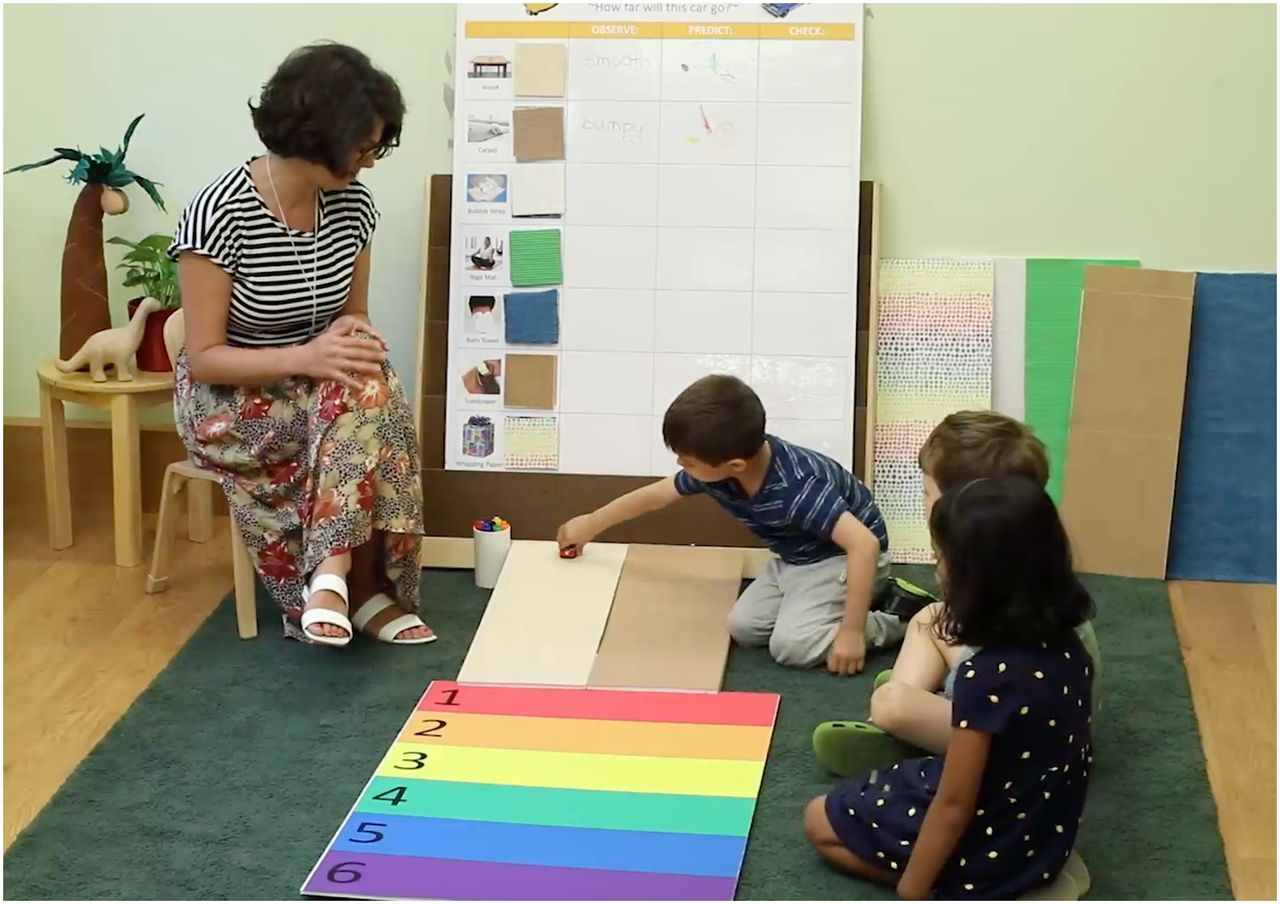Language implying that scientists have a special kind of identity (e.g., “Let’s turn on our special scientist brains!”) is prevalent in input to young children and has immediate negative consequences for children’s science behavior in laboratory studies. To test if these effects of language are powerful enough to shape child behavior as it unfolds in the natural course of development, we conducted a large field experiment with prekindergarten teachers and their students. Brief video-based training led teachers to change their language and increased children’s science persistence several days later but did not affect children’s feelings of science self-efficacy. These data reveal tools that could be used to increase science engagement in daily life.
Abstract
Subtle features of common language can imply to young children that scientists are a special and distinct kind of person—a way of thinking that can interfere with the development of children’s own engagement with science. We conducted a large field experiment (involving 45 prekindergarten schools, 130 teachers, and over 1,100 children) to test if targeting subtle properties of language can increase science engagement in children’s daily lives. Despite strong tendencies to describe scientists as a special kind of person (in a baseline control condition), brief video-based training changed the language that teachers used to introduce science to their students. These changes in language were powerful enough to predict children’s science interest and behavior days later. Thus, subtle features of language shape children’s beliefs and behaviors as they unfold in real world environments. Harnessing these mechanisms could promote science engagement in early childhood.
Read full article at:
https://www.pnas.org/doi/10.1073/pnas.1919646117




Comments
Post a Comment